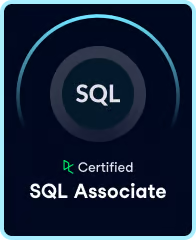Melyssa Minto
Certified
Statistical Programmer
-
Technologies
My Portfolio Highlights
My New Certification
SQL Associate
My New Certification
SQL Associate
Analytics maestro, transforming raw data into symphonies of knowledge.
My Certifications
These are the industry credentials that I’ve earned.

SQL Associate
DataCamp Course Completion
Take a look at all the courses I’ve completed on DataCamp.
My Work Experience
Where I've interned and worked during my career.
RTI International | Oct 2022 - Present
Bioinformatic Scientist
Duke University | Aug 2017 - Oct 2022
Graduate Student
Duke University | Apr 2020 - Aug 2020
Project Manager
ScitoVation | Jan 2017 - Jan 2018
Intern
North Carolina Museum of Natural Sciences | Jun 2016 - May 2017
Research Intern
Biomedical/Biotechnology Research Institute at North Carolina
Central University | Jul 2015 - Dec 2016
Research Data Analyst
North Carolina State University | Jun 2016 - Aug 2016
Research Intern
My Education
Take a look at my formal education
PhD in Computational Biology & BioinformaticsDuke University | 2022
B.S. in MathematicsMeredith College | 2017
B.S. in BiologyMeredith College | 2017
Powered by